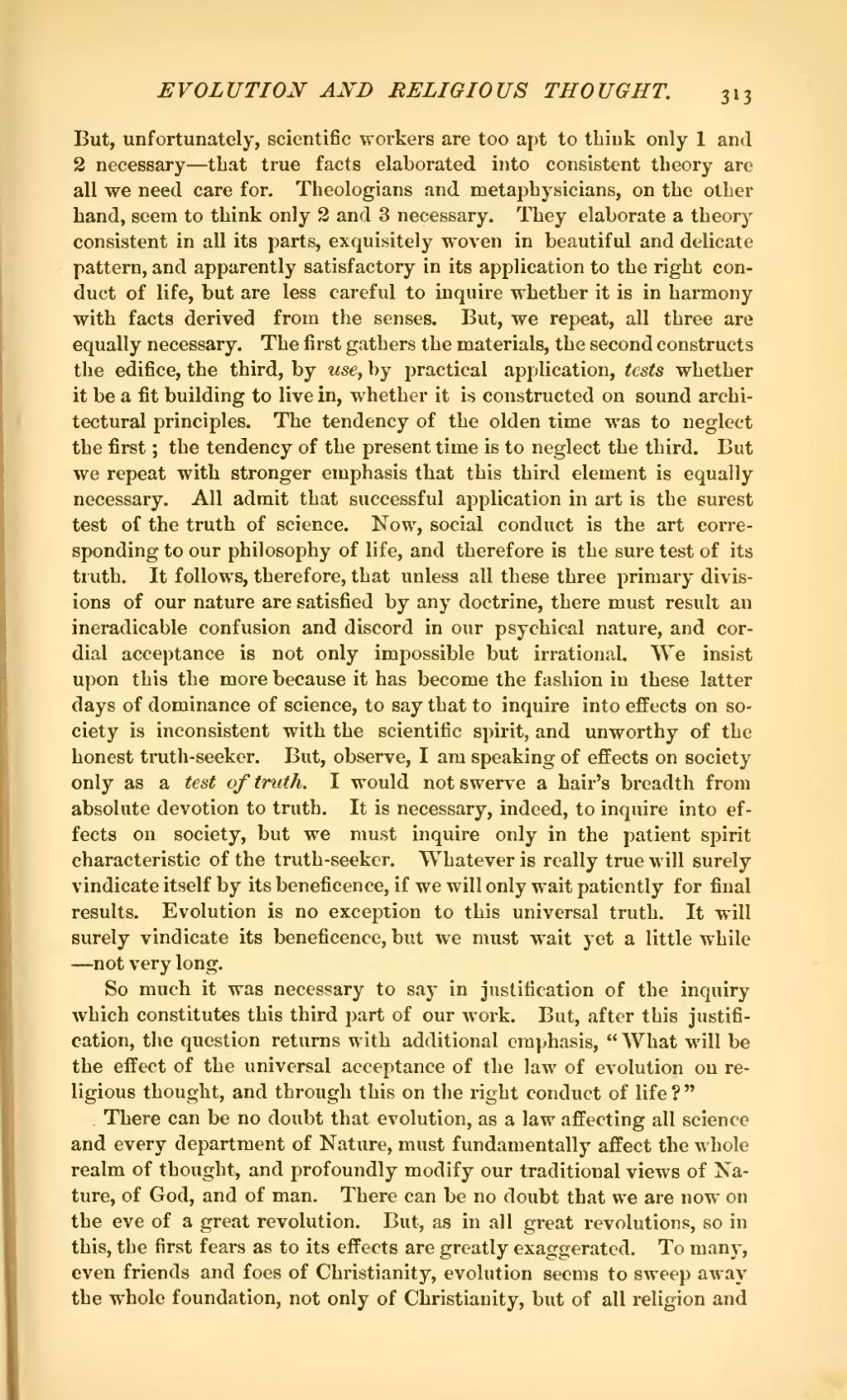But, unfortunately, scientific workers are too apt to think only 1 and 2 necessary—that true facts elaborated into consistent theory are all we need care for. Theologians and metaphysicians, on the other hand, seem to think only 2 and 3 necessary. They elaborate a theory consistent in all its parts, exquisitely woven in beautiful and delicate pattern, and apparently satisfactory in its application to the right conduct of life, but are less careful to inquire whether it is in harmony with facts derived from the senses. But, we repeat, all three are equally necessary. The first gathers the materials, the second constructs the edifice, the third, by use, by practical application, tests whether it be a fit building to live in, whether it is constructed on sound architectural principles. The tendency of the olden time was to neglect the first; the tendency of the present time is to neglect the third. But we repeat with stronger emphasis that this third element is equally necessary. All admit that successful application in art is the surest test of the truth of science. Now, social conduct is the art corresponding to our philosophy of life, and therefore is the sure test of its truth. It follows, therefore, that unless all these three primary divisions of our nature are satisfied by any doctrine, there must result an ineradicable confusion and discord in our psychical nature, and cordial acceptance is not only impossible but irrational. We insist upon this the more because it has become the fashion in these latter days of dominance of science, to say that to inquire into effects on society is inconsistent with the scientific spirit, and unworthy of the honest truth-seeker. But, observe, I am speaking of effects on society only as a test of truth. I would not swerve a hair's breadth from absolute devotion to truth. It is necessary, indeed, to inquire into effects on society, but we must inquire only in the patient spirit characteristic of the truth-seeker. Whatever is really true will surely vindicate itself by its beneficence, if we will only wait patiently for final results. Evolution is no exception to this universal truth. It will surely vindicate its beneficence, but we must wait yet a little while—not very long.
So much it was necessary to say in justification of the inquiry which constitutes this third part of our work. But, after this justification, the question returns with additional emphasis, "What will be the effect of the universal acceptance of the law of evolution on religious thought, and through this on the right conduct of life?"
There can be no doubt that evolution, as a law affecting all science and every department of Nature, must fundamentally affect the whole realm of thought, and profoundly modify our traditional views of Nature, of God, and of man. There can be no doubt that we are now on the eve of a great revolution. But, as in all great revolutions, so in this, the first fears as to its effects are greatly exaggerated. To many, even friends and foes of Christianity, evolution seems to sweep away the whole foundation, not only of Christianity, but of all religion and
